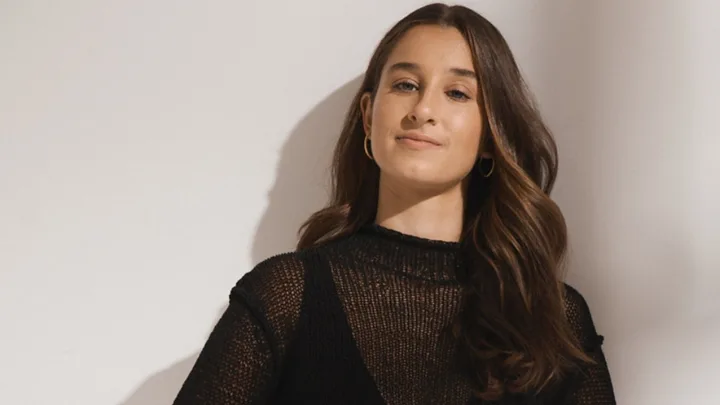Have you or has anyone close to you experienced sexual assault from someone who went to an all-boys school?” That’s the question then-Masters student Chanel Contos posed in an Instagram poll in February 2021 – a question that reverberated around the country.
Within 24 hours of the poll, more than 300 people had responded, with 72 per cent of them answering “yes”. Within three weeks, Contos amassed testimonies from 6000 people detailing their experience with behaviour constituting rape and sexual assault. Almost all of these instances were committed by people known to the survivors, yet virtually none were reported.
Within a month of starting a petition demanding consent classes in schools, Contos had 45,000 signatures. Within a year, the nine education ministers in Australia agreed to mandate consent education.
And now, just over two years on from her viral question, 25-year-old Contos has written Consent Laid Bare, a blistering, unflinching – and therefore sometimes uncomfortable – look at Australia’s rape culture.
“The number one thing I want people to get out of my book is I want them to feel as though they have increased their capabilities to be able to engage in consent,” the recipient of the 2021 Australian Human Rights Commission Young People’s Medal tells marie claire Australia.
“I want people to think critically about their own sexual relations and make sure that it increases their ability to have those in a way they actually want, and to help people figure out what they actually want.
“I think a lot of sex happens that is consensual, but it’s not necessarily desired. I particularly want young people and young women to feel as though they know themselves and their wants a bit better.”
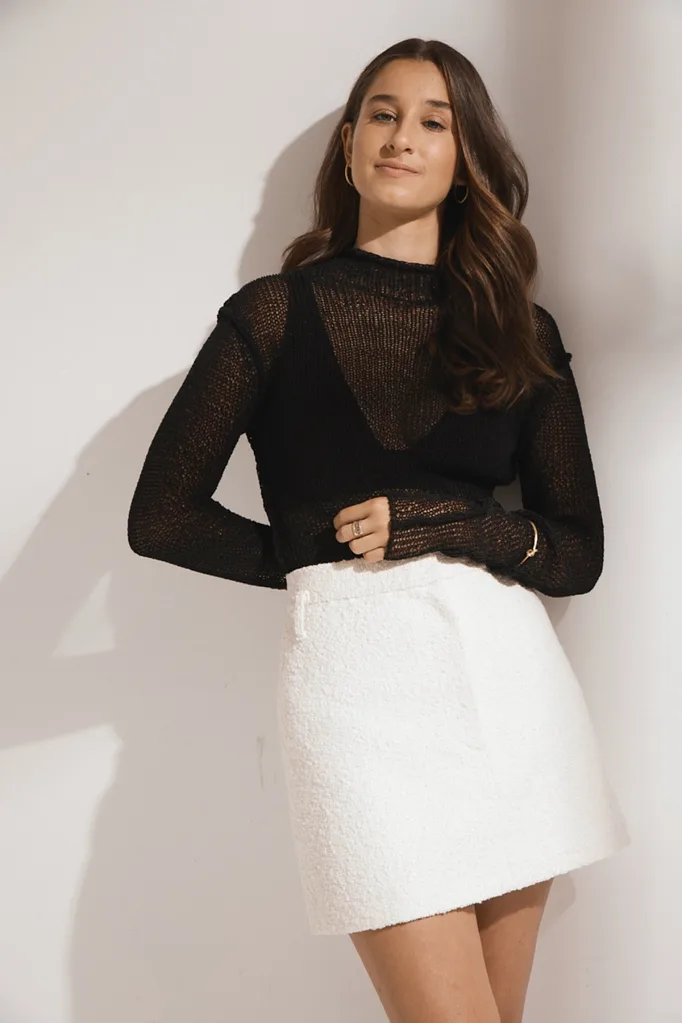
Last year, Contos, one of marie claire’s 2022 Women of the Year, was listed as one of the BBC’s 100 most inspiring and influential women worldwide. She was also presented with the UK’s Diana Award, and in 2023 she was named New South Wales Young Woman of the Year for her tireless activism towards eradicating rape culture. In April, she was appointed to chair the Youth Advisory Committee for the Global Institute for Women’s Leadership.
While she has been deservedly recognised for her efforts, the personal toll on Contos over these past few years has been significant. Not only has she been on the receiving end of trolling and threats, but she has also been privy to thousands of personal accounts of rape and assault.
Despite this, Contos is resolute. “The online abuse honestly didn’t really impact me because there wasn’t much of it in comparison to how much support there was,” she says.
“But reading those testimonies, working in this space, researching for this book, it’s forever changed the way I will have relationships with men, sex, the world and myself. Would I do it again – would I take that personal toll again? The answer is yes, basically. Hopefully I’ve made a tiny, tiny, tiny change for women in Australia.”
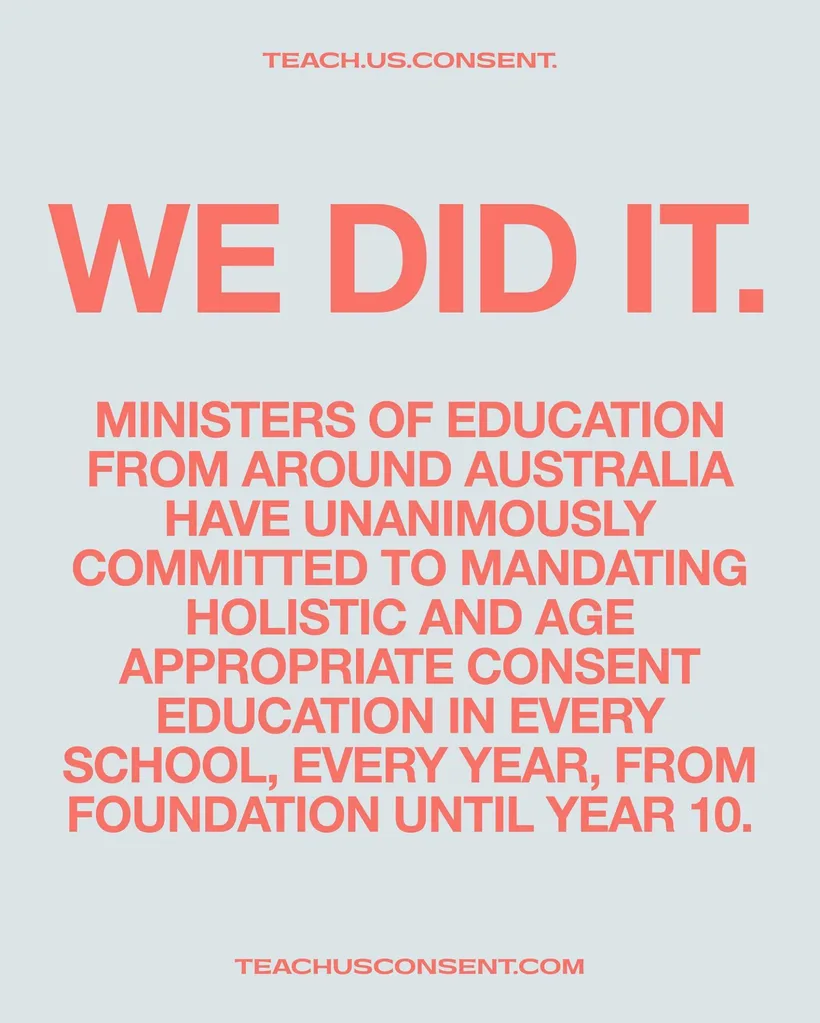
Here, in an edited extract from her new book, Consent Laid Bare, Contos takes a radical stand against an industry that is historically damaging to women and children: pornography.
Eighty-four per cent of men aged 15-29 watch porn at least once a week, and many of these men do so daily. The same is true for 19 per cent of women in this same age bracket. Whether you notice it or not, porn is an immensely powerful and mostly unexamined presence in our psychological lives.
We understand Facebook founder Mark Zuckerberg to be among one of the most powerful people alive due to his influence on what appears on our screens. We all know his name, and sometimes he is held to (very minor) account for cyber wrongdoings, for example the €17 million fine ($28.4 million) for breaching EU data privacy laws in 2022.
On the other hand, while you can google who owns MindGeek (the parent company of Pornhub), they are essentially anonymous, even though their influence on culture is arguably more substantial than swaying US elections.
Of course, what makes porn different from other cultural industries like music, fashion or film is its uniquely taboo position in society.
A serious interrogation of the ethics of porn raises some tricky questions: Is porn inherently misogynistic? How should we reconcile that many women find working in pornography fulfilling while so many find it oppressive? Can we separate an individual experience in sex work from the industry? How do we think about the fact that many women enjoy consuming porn made by an industry that is so uniquely damaging to many women and children?
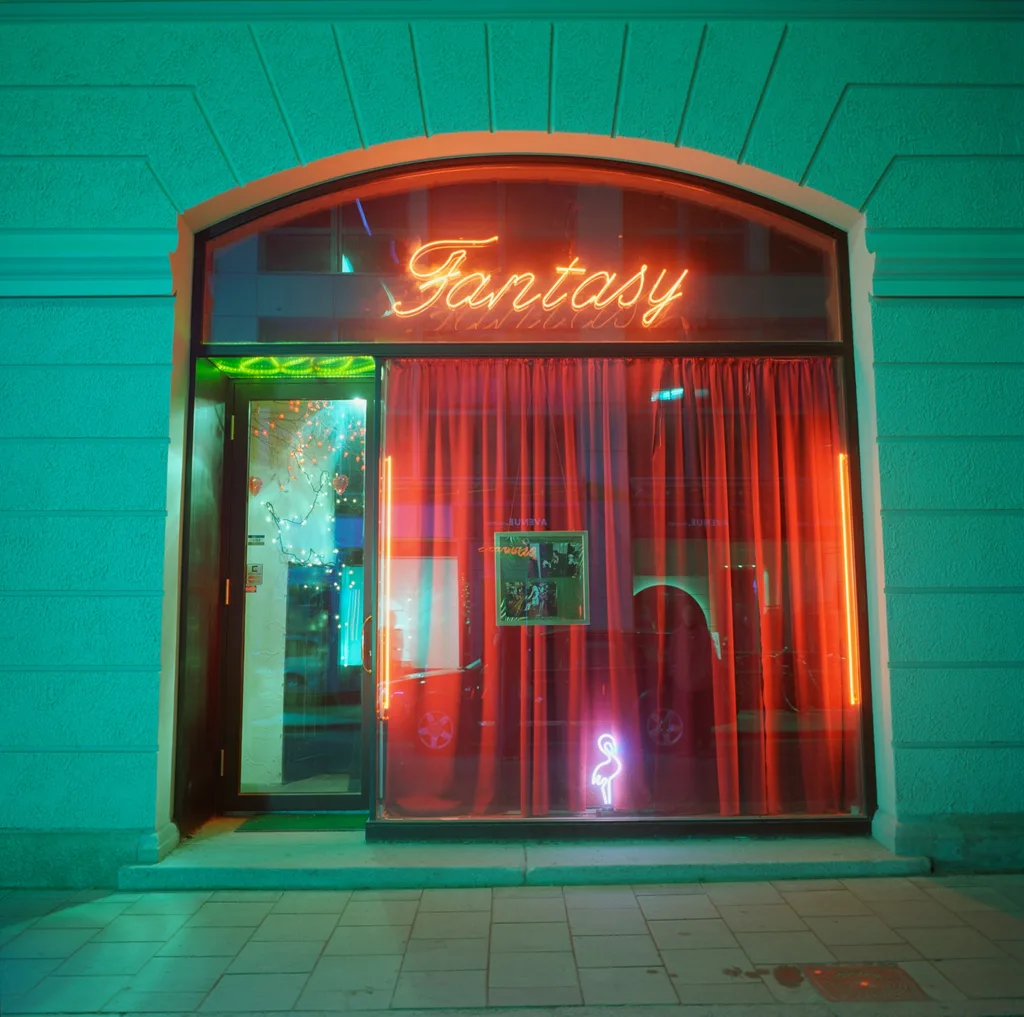
We must even consider things as practical as the fact that watching anything on Pornhub directly profits a company that has time and again allowed people to watch grave sexual violence against women and minors with little or no recourse. In the short period of January 2017 until October 2019, the Internet Watch Foundation found 118 instances of child sexual abuse imagery on Pornhub. This is only what they found, and this does not include children who may look 18 or older; they can only take action on videos containing obvious children.
At the very core of the issues around porn is this question: Is there something inherently different about sex work compared to any other work? It’s a common mantra in the current wave of feminism that it is just another way of “selling your body”, the same way men do when they work a physically tiring job like bricklaying. Modern feminism has framed sex work as sexually liberating, and put pornography and sex work in the category of strictly “do not debate”.
We are told to celebrate sex work as “using what we have” against the man in a sort of righteous reversal of the gender hierarchy: men are going to stare, may as well make them pay.
The feminists of the 1960s to ’90s not only tore each other apart over this question, but tore each other down over it, forgetting their common goal: sexual liberation and the reduction of violence against women and children.
Pro-porn feminists were tired of a millennia-old culture that feared and demonised female sexuality. They wanted to encourage women to enjoy and engage in sex in the same way that men were able to, free from societal shame and stigma. In this context, anti-porn activism seemed counter to their goals: it wanted to hide women away and stop them from expressing their sexuality publicly.
Anti-porn feminists saw it differently. They believed the structural conditions of our society made it impossible for women to benefit by engaging in sex the same way that men do.
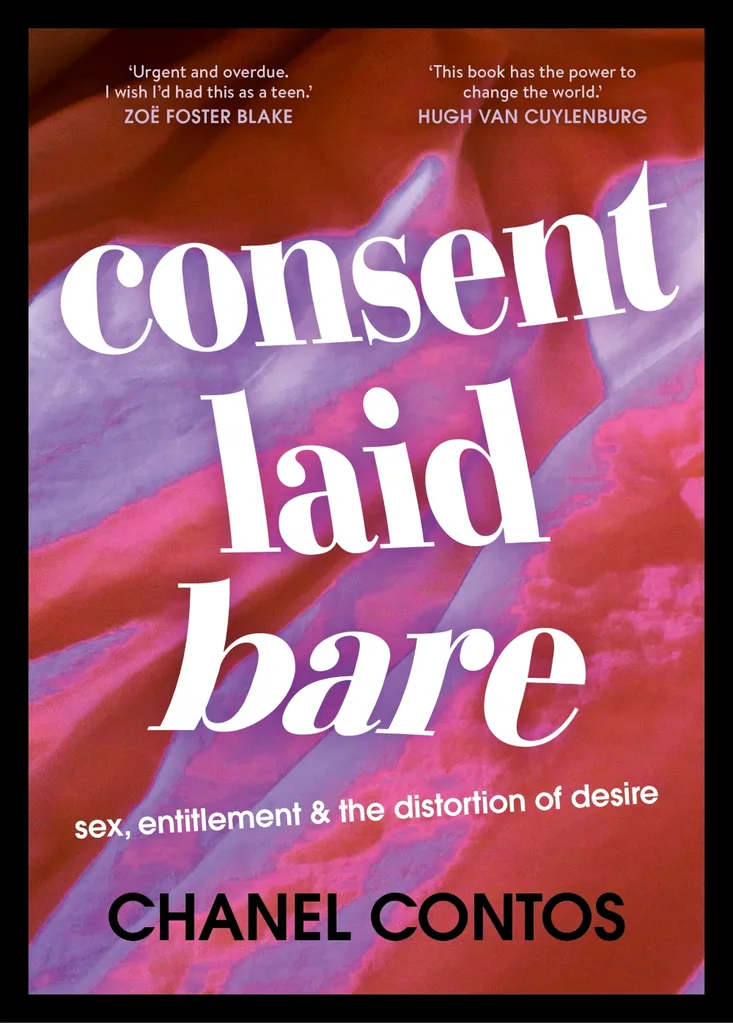
Individuals selling their bodies for money was seen as feminism being co-opted by the patriarchy and capitalism. If the individual was convinced it is truly empowering to them personally, then it would be argued that it still disempowered the female collective by eroticising women and encouraging them to be viewed as consumable objects.
There is no longer such a clear dichotomy between pro-sex feminists and anti-porn feminists because there isn’t really anything to debate anymore on a practical level: Web 2.0 settled it for us.
As soon as users could generate their own content, use the internet with no training and exchange information with each other, to be “anti-porn” arguably became pointless. When I was talking to someone about the option to “ban” porn, he joked that it would simply upskill a generation on how to use VPNs, access the dark web and hack servers.
Moreover, the way that pornographic content is defined is drastically different. I was at Glebe Markets in Sydney recently and picked up a vintage Playboy magazine. The most explicit content in it was a poorly photoshopped naked image of Princess Diana. (I was much more shocked by the smoking ads – buy a packet of cigarettes to enter the draw to win a boat!)
It’s also worth noting that not only did the evolution of the internet settle the question of porn or no porn for us, but the internet exists as we know it because of porn.
Fast download speeds, video file compression, user-friendly online payment systems, streaming, surround sound, large amounts of storage and virtual reality are features that have all been driven by the demand for pornography and the profits that come from it. Prototypes of animatronics (mechatronic puppets, as in sex robots) that use artificial reality already exist. I wonder how and where the next generation of teenagers will hide these in their bedrooms?
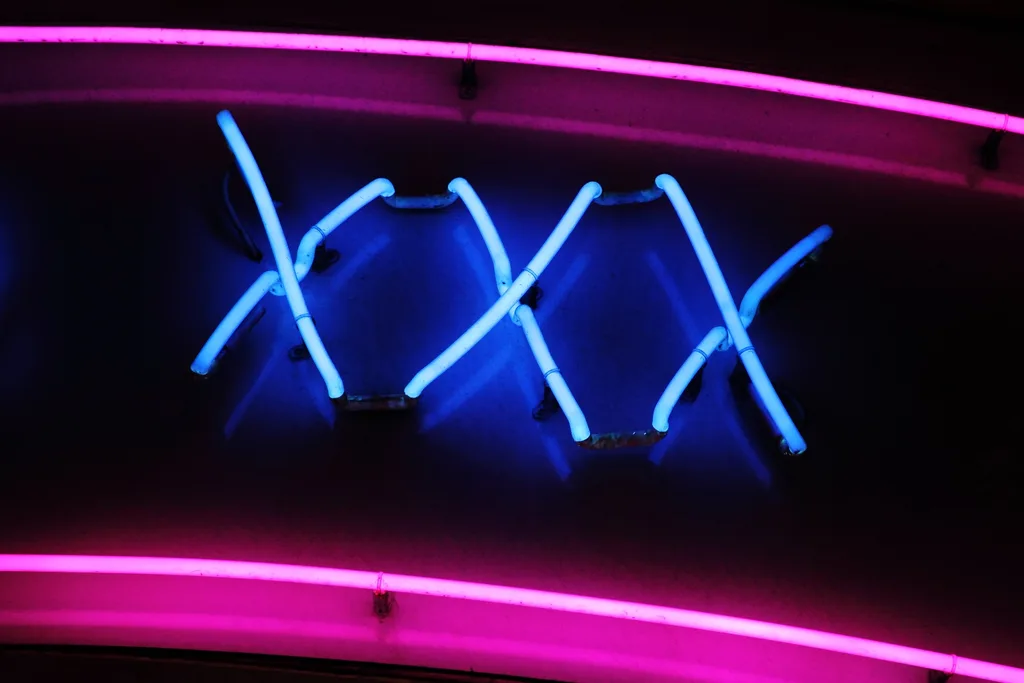
As we know from most attempts to regulate natural human behaviour (eg, prohibition, drug laws, abortion and sex work bans), criminalising the pornography industry would just make women who are susceptible to exploitation even more vulnerable. It would make it even harder to get non-consensually uploaded videos deleted, and sex trafficking rates would increase dramatically, as supply for actors would reduce, but demand would likely stay the same.
Sex trafficking, a subset of human trafficking, is the fastest growing criminal business in the world, and has been the third largest criminal enterprise since 2010.
Global Estimates of Modern Slavery, a recent report by the International Labour Organization, Walk Free and the International Organization for Migration determined 6.3 million people to be in situations of forced commercial sexual exploitation at any given point in time, with four out of five of these people being girls and women, and one quarter of them being children. Children. In fact, one half of all children in forced labour in the world are in commercial sexual exploitation.
Meanwhile, a study of 400 million web searches revealed that the most popular term related to sexual searches was “youth”. And anyone who uses Pornhub should be well aware that one of its most searched terms is “teen” as it has remained in the top 10 for the past six years.
I am genuinely perplexed how we can continue to have conversations about preventing men subjecting women and children to sexual violence when this is the unspoken reality. We are supposed to stay blind to these supply chains and instead declare how “empowering” and “liberating” this industry is. Given all this, I do not think that anyone can consume porn truly ethically. To be honest, I think that consuming porn is an anti-feminist act.
That doesn’t mean I’m anti-sex, or anti the sexual liberation of women. The opposite, actually. I spend most of my time working towards a world in which women can experience the full freedom to choose how much or little sex they have, with whomever they like. This also doesn’t mean that I think you are unable to be a feminist and watch porn; it means that we need to stop labelling the consumption of porn as emancipating, and accept that you can want a world that is better for women and marginalised people, but sometimes still do something that contradicts that.
This again echoes the idea that individual women may gain benefit from the porn industry, but if they do, it will always be at odds with the benefit of the collective. It is a fundamentally anti-feminist act to watch porn because there is no way to tell the difference between consensual porn and non-consensual porn. For every woman who feels liberation from being in the porn industry, how many others have been forced into it to pay the bills? Hundreds? Thousands?
Continuing on, there is no way to tell if someone is 15 or 19 – especially when “teen” is one of the most popular searches. Where do you think the supply to meet this demand is coming from? There is no way to tell who has consented to the recording and uploading of the video or who is of legal age to consent to sex.
As I said, you can be a feminist and watch porn, but we must stop pretending it is a feminist act. We can care deeply about the environment and eat meat, but when we take a bite into a burger, we aren’t trying to pretend that it’s empowering for the cows.
Consent Laid Bare: Sex, Entitlement & the Distortion of Desire by Chanel Contos (Pan Macmillan, $36.99) is out now.
